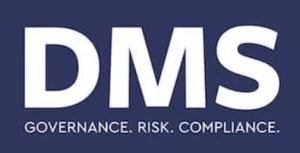DMS Managing Director Don W. Ebanks discusses topical governance issues in an interview with Hedgeweek for its special report, Cayman Islands Hedge Fund Services 2016.
With the Directors Registration & Licensing Law now up and running, CIMA is placing more emphasis on supervising directors to Cayman funds. Do you think it is a good idea to have such a register in place?
DWE: I think it is correct that there is more emphasis on regulating directors. The Directors Registration & Licensing Law ("DRLL") creates a framework for authorization (registration or licensing) of hedge fund directors and adds enforcement tools to those which already exist in the Mutual Funds Law (which governs hedge funds in Cayman). For example Section 30(3) (c) of the Mutual Funds Law gives CIMA the power to require the substitution of any director of a regulated fund. The DRLL goes further and provides for, inter alia, the effective disqualification of hedge fund directors through Section 25(2). The register maintained by CIMA under the DRLL, which includes contact details, is a useful tool as the law does place an obligation on the registered or licensed director to keep those details current. This is an important provision for the regulator (and investors) when funds are in any type of distressed situation and communication with all directors is essential.
HW: Are you detecting changes in the ways that fund managers approach their corporate governance requirements? Are you seeing, for example, increased use of independent directors from DMS, and other directorship firms, as appointments to split boards?
The use of independent directors has become the norm, which has increased demand across the board, but a majority of independent directors on offshore fund boards is not yet universal. An independent majority is something that institutional investors typically look for and I have seen voting shares being held in trust arrangements more often in the last few years. Split boards are certainly used a bit more very recently, but the important question seems to be the overall board composition and function, which is addressed in the CIMA Statement of Guidance ("SoG") for funds and below.
What are some of the key advantages that DMS can offer to fund managers, in terms of the depth and breadth of expertise that its directors can bring to bear for hedge funds?
DWE: DMS has, over more than a decade, built a proven and successful professional Fund Governance firm that has expanded to seven jurisdictions around the world, offering both onshore and offshore directorship services. Our directors also draw on our specialist teams in areas such as AIFMD and FATCA/International Tax Compliance to satisfy their fiduciary duties and add value in an increasingly complex environment. During 2015, DMS added a number of U.S.-based independent directors to its established team of directors in Cayman, Ireland and Luxembourg. The new members of our team come from diverse backgrounds including serving as a COO of large hedge funds and leading Operational Due Diligence teams for alternative investments at major global banks.
Our directorship solutions combine market-leading expertise with state-of-the-art technology and compliance with SEC fund governance standards. In addition, we provide fund stakeholders with transparency and accountability with unique reporting systems, such as our Fund Governance Transparency ReportSM, which shows the governance "touch points" in a specified period, and Independent Directors' ReportSM ("IDR"). The IDR provides confirmations regarding issues of concern to prospective investors (e.g. no material litigation or regulatory issues) from an independent source.
How would assess 2015? Have you seen increased demand for our services compared to 2014?
DWE: 2015 has been similar to 2014 with a substantial amount of attention being given to regulatory issues such as OECD CRS, but last year was about seeing the light at the end of the tunnel. We haven't dealt with all the issues yet, but things appear to have "settled down" a bit and we can focus more on implementation and oversight rather than absorbing entirely new demands on the governance process. Managers do appear to appreciate the input that a well informed and experienced director can provide in these areas. We have certainly seen increased demand for governance services, especially in areas where we are offering new solutions.
How important is it for fund managers to appoint directors that collectively bring a wide range of complimentary skill sets to the table?
This is one of the most important issues to consider. Does it make sense to have two independent directors with nearly identical CVs, even if they're from different firms? I tend to think of governance in terms of maritime navigation, you need to know where the reefs and shallows are to avoid sinking. A board with diverse skills and experience can most effectively map out the challenges, which can also be rapidly evolving, in order act in the best interests of investors. Directors may wish to lean on, for example, legal counsel, but what use are professional advisors to the board if you don't know the questions to ask? The CIMA SoG also requires fund boards to consider their overall effectiveness, which includes collective expertise.
There are an increasing number of independent directorship services opening up in Cayman (e.g.Crestbridge most recently). Do you welcome the increased competition?
Absolutely. It's a large market and we're proud to be the largest provider in the Fund Governance space, but size isn't enough. Your scale should be used to implement solutions and this can be seen in our best in class AIFMD / risk reporting and speed to market on FATCA where we were at the cutting edge of raising awareness. As noted above, varying skills on a board are very useful and I hope that the new firms are diligent about this in the hiring process otherwise we will not actually increase diversity in the industry.
Finally, how is regulation such as AIFMD impacting board meetings? Is it taking up moretime and what, in your view, are the most important regulatory issues that directors need to keep on top of currently?
Increased regulation is the "new normal" and at least in our experience is fairly bedded in at this point. Board agendas are updated and you spend more time focused on those issues, but it's not a dramatic change. AIFMD is one of the most important as improper marketing to EU investors can come with significant penalties. One issue that I saw last year was a quarterly market update for one fund that mentioned the manager's new fund with a short description of the strategy. I immediately checked if there were any EU investors and raised the issue with the manager noting that such information may be considered marketing under AIFMD and should be removed. Directors don't have to be experts on every issue, but having a basic awareness is essential as we are ultimately responsible for regulatory compliance.
The content of this article is intended to provide a general guide to the subject matter. Specialist advice should be sought about your specific circumstances.


